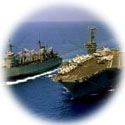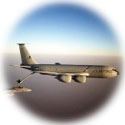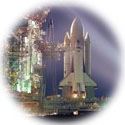Engineering Analysis
- Adaptive control, including adaptive cruise control
- Engineering economics and cost/benefit analysis
- Driver Task Analysis
- Human factors engineering for vehicle design
- Simulation and optimization of transportation systems
- Information systems and communication
- Vehicle dynamics and control
Infrastructure Engineering
- Bridge performance models
- Constructability
- Composite jacketing systems for bridge column retrofits
- Lifeline engineering for critical systems
- Seismic analysis and design of bridge footings
- Seismic assessment and retrofit of existing bridges
- Seismic risk analysis for infrastructure systems
- Seismic design of bridge foundation system
- Effects of soil liquefaction on bridge foundation integrity
Modal Applications
- Advanced technologies for multimodal transportation systems
- Automated highway systems
- Logistics and distribution
- Management of transit fleets and services
- Ports and ships
Transportation Modeling
- Applications of artificial intelligence to transportation
- Computational models of urban land use/transport and other complex systems
- Mathematical programming models of network per-formance and control
- Reliability of transportation systems
- Traffic flow modeling and control
Transportation Planning
- Evaluation of new transportation technologies
- Impacts of information technology on transportation and travel behavior
- International planning and development
- Pricing and market based policies
- Transportation and land use planning
- Transportation economics
- Transportation and policentric urban form
Transportation Policy
- Evaluation of transportation policy
- Evaluation of transit programs and policies
- Transportation and disadvantaged populations
- Transportation and the environment
Transportation research at USC is frequently completed in cooperation with one of several research consortia. Research relating to transportation systems and new technologies is often done in association with the California Partnership for Advanced Transit and Highways (PATH), established by the California Department of Transportation (Caltrans) in 1986 to support research on advanced technologies for transportation; or the Center for Commercial Deployment of Transportation Technology (CCDoTT), a university/industry consortium formed by USC, the California State University at Long Beach, and several industrial partners in 1995. Research relating to transportation infrastructure and is often done in association with the Southern California Earthquake Center (SCEC), a university consortium formed in 1991 with the U.S. Geological Survey; the California Universities for Research on Earthquake Engineering (CUREe), or the Center for Pacific Earthquake Engineering Research (PEER), an university/industry consortium formed in 1996.
Transportation research at USC is sponsored by a variety of sources, including the California Department of Transportation (Caltrans), the US Department of Defense (DOD), the Federal Highway Administration (FHWA), the Federal Transit Administration (FTA), the Los Angeles County Metropolitan Transportation Authority (MTA), the National Center for Earthquake Engineering Research (NCEER), the National Science Foundation (NSF), and other organizations.



